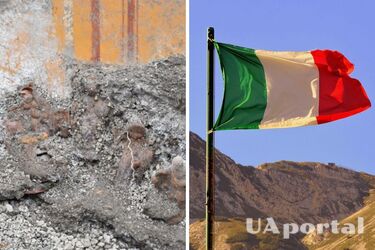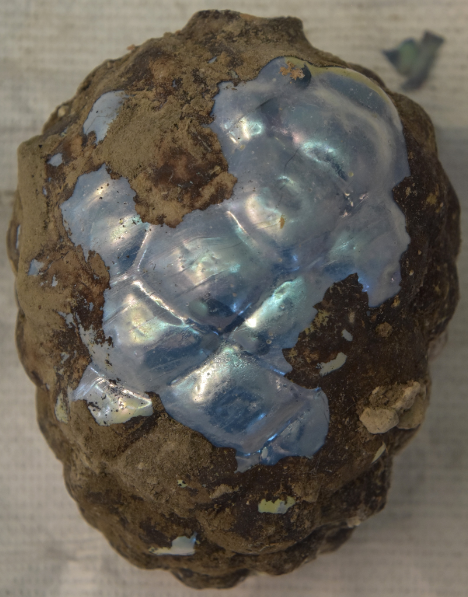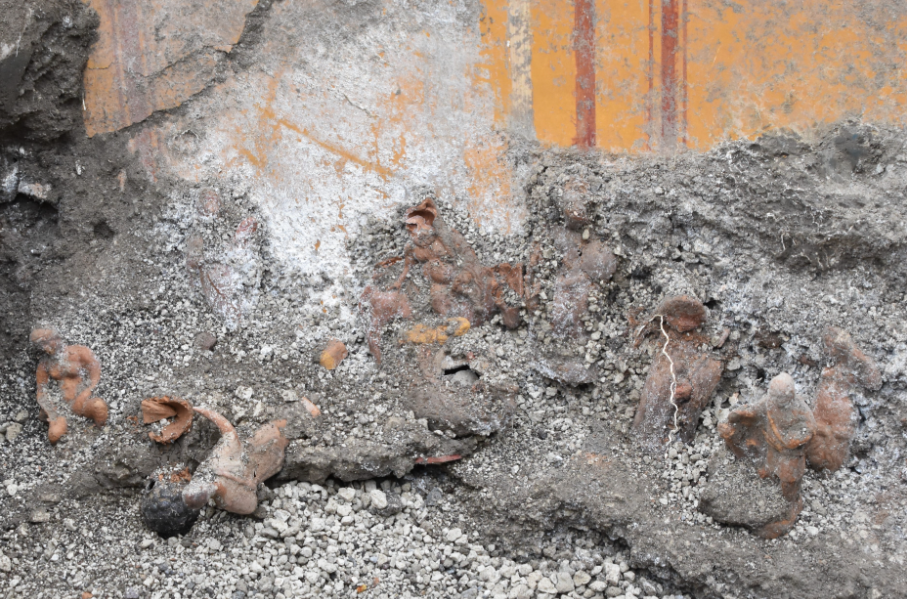Figurines of the ancient cult of the goddess Cybele discovered in Pompeii (photo)

In Pompeii, during the excavations of the Domus, next to the house of the Lady and the Swan, archaeologists discovered 13 terracotta figures. According to the researchers, they are associated with the cult of the goddess Cybele.
The figures were painted with bright polychrome colors, traces of which have been preserved. This was reported by The History Blog.
The niche with the figures was lined with travertine blocks, and the figures were found in a vertical position along a horizontal line, indicating that they were lined up on a shelf. Many fragments of terracotta were also found, so there were probably many more figurines on the shelf.
Read also: Six ancient statues discovered in Cambodia (photo)
Among the non-human objects depicted are a walnut, almonds, a rooster's head, and a glass pine cone that somehow managed not to be shattered.

Originating in Phrygia, the cult of Cybele worshipped her as the goddess of nature and its cycles: birth, death, and renewal.

One of the figures is Attis, who is recognized by his Phrygian cap, the cyst he wears, a shepherd's raven, and a rooster. There is also a separate votive figure of a rooster, an almond and a pine cone, as well as a fragment of a female figure depicting a mother about to breastfeed her infant.

As a reminder, ancient people used to make drinking bowls out of human skulls.
If you want to get the latest news about the war and events in Ukraine, subscribe to our Telegram channel!
